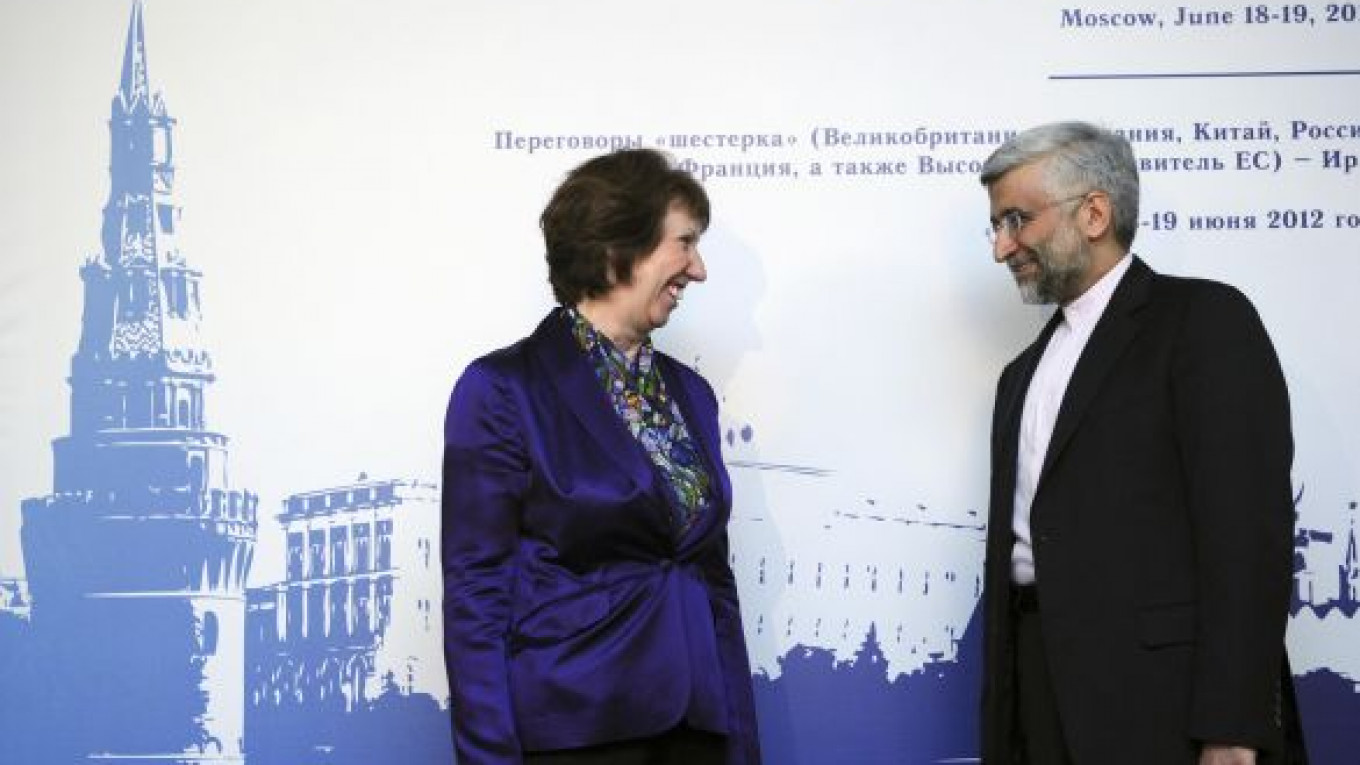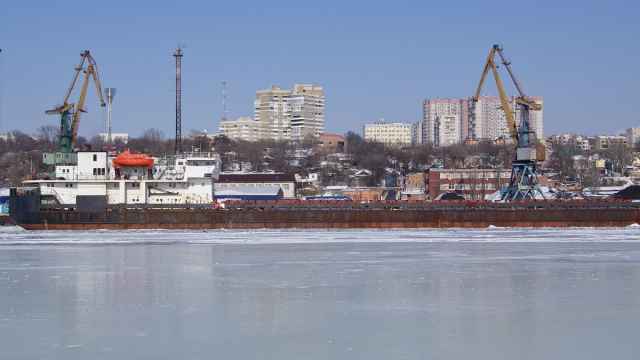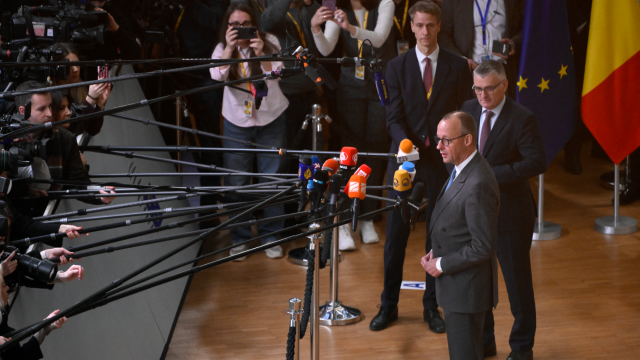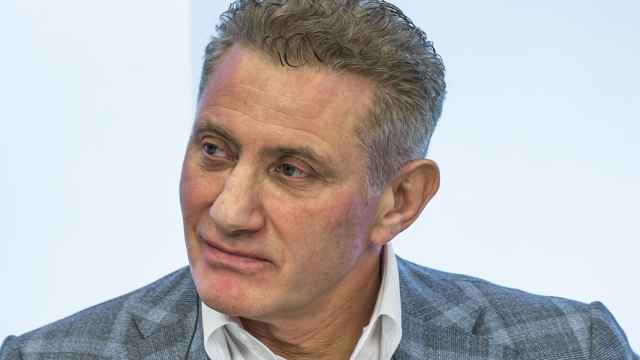World powers began two days of talks with Iran in Moscow on Monday to try to end a decade-long standoff over Tehran’s nuclear program and avert the threat of a new war in the Middle East.
In Iran, President Mahmoud Ahmadinejad said Tehran would be prepared to stop enriching uranium to a higher level — a process that could be used to make nuclear arms — if the six powers agreed to meet its needs for the fuel. But it is not clear how much influence Ahmadinejad has over the negotiations and whether his remarks reflect Tehran’s position in the talks.
Experts and diplomats said a breakthrough was unlikely at the meeting in Moscow, where the world powers are wary of making concessions that would enable Tehran to draw out the talks and give it more time to develop a nuclear weapons capability.
Iran strenuously denies it has any wish to obtain such weaponry and says it only wants nuclear technology to generate electricity.
Israel has threatened to bomb Iran if no solution to the dispute is found, oil markets are nervous over the prospect of intensifying regional tensions, and the frail world economy can ill afford a further increase in crude prices.
“The atmosphere was fine, business-like and good. We hope this translates into a serious political commitment by the Iranians to address our proposals,” a European Union spokesman said after the talks started in the Russian capital.
But a Western official made clear that the United States, Russia, China, Britain, France and Germany were ready to deepen Iran’s diplomatic and economic isolation if no deal is reached.
“If Iran remains unwilling to take the opportunities these talks present, it will face continuing and intensified pressure and isolation,” a Western official said.
The Moscow talks follow two rounds of negotiations since diplomacy resumed in April following a 15-month hiatus.
The United States wants to halt Iran’s enrichment of uranium to 20 percent purity, a level that some experts consider to be a dangerous step toward achieving the ability to create the explosive material required to make a nuclear bomb.
Ahmadinejad’s comments on enrichment appeared to be intended to ease pressure from the world powers and encourage them to make concessions at the talks.
“From the beginning, the Islamic Republic has stated that if European countries provided 20 percent enriched fuel for Iran, it would not enrich to this level,” Ahmadinejad stated in comments published on his presidential website.
But the Iranian president, who leaves office after elections next year, has fallen out of favor with Supreme Leader Ayatollah Ali Khamenei, the man who has the ultimate decision-making power over the strategic nuclear program.
New U.S. and European Union sanctions are due to come into force in two weeks, tightening economic pressure on Iran.
Without progress to ensure that Iran does not develop nuclear arms, Israel “could find itself facing the dilemma of a bomb or to bomb,” Vice Prime Minister Moshe Ya’alon said Sunday.
“Should that be the choice, then bombing [Iran] is preferable to a bomb [in Iran’s hands],” he said. “I hope we do not face that dilemma.”
The six powers, led by EU foreign policy chief Catherine Ashton, hope at least to win assurances that Tehran is willing to discuss concrete solutions, opening the way to progress.
The six nations want a substantive response to their offer of fuel supplies for a research reactor and relief in sanctions on the sale of commercial aircraft parts to Iran.
At the last talks, in Baghdad last month, they asked Tehran in return to stop producing higher-grade uranium, ship any stockpile out of the country and close down the underground Fordow facility where such work is done.
But Iran’s chief negotiator, Saeed Jalili, has indicated that the incentives on offer are insufficient.
Iranian officials said Tehran would express dissatisfaction that there were no preparatory talks for the Moscow meeting and that progress was possible only if the six powers acknowledged its right to enrich uranium, something they have refused to do until Tehran agrees to in-depth UN inspections of its nuclear sites.
Iran is seeking an end to increasingly tough economic sanctions that have in recent months directly targeted its ability to export oil, its economic lifeblood.
But international concern is growing. In talks this month, the International Atomic Energy Agency failed to persuade Iran to let it inspect the Parchin military site, where it suspects nuclear bomb-related research took place.
Last week, EU officials said Jalili had agreed to give serious consideration to the six powers’ proposal. Russia’s determination to avoid diplomatic defeat may increase hopes of agreement to at least meet again.
A Message from The Moscow Times:
Dear readers,
We are facing unprecedented challenges. Russia's Prosecutor General's Office has designated The Moscow Times as an "undesirable" organization, criminalizing our work and putting our staff at risk of prosecution. This follows our earlier unjust labeling as a "foreign agent."
These actions are direct attempts to silence independent journalism in Russia. The authorities claim our work "discredits the decisions of the Russian leadership." We see things differently: we strive to provide accurate, unbiased reporting on Russia.
We, the journalists of The Moscow Times, refuse to be silenced. But to continue our work, we need your help.
Your support, no matter how small, makes a world of difference. If you can, please support us monthly starting from just $2. It's quick to set up, and every contribution makes a significant impact.
By supporting The Moscow Times, you're defending open, independent journalism in the face of repression. Thank you for standing with us.
Remind me later.






